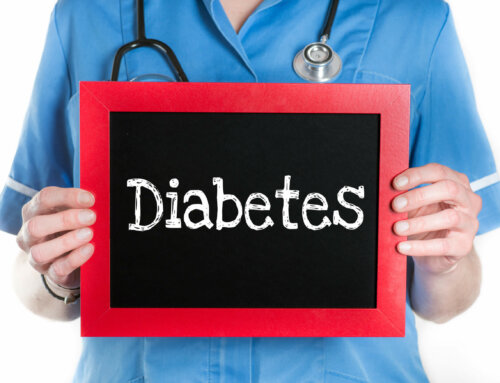According to Dr. Mark Hyman, a well-known physician/author who focuses on diabetes, heart disease and diet, “10% of 65 year olds, 25% of 75 year olds and 50% of 85 year olds will develop dementia or Alzheimer’s disease.” Along with diabetes and obesity, it is a global epidemic. Alzheimer’s is the top form of dementia and now the sixth leading cause of death in the United States. Alzheimer’s is a brain disease that is progressive, often starts with forgetfulness and confusion, in which the brain’s nerve cells degenerate. It can then affect personalities, moods and language leading to behavior issues in the patient. It is not considered “natural aging.” There is gene involvement but only 5% of cases are directly related to genes. The main causes seem to involve oxidative stress as well as systemic inflammation. Some of it is aging but it also encompasses lifestyle which contributes to brain health. “The medical community has yet to identify a specific cause and there is no effective long term treatment.”
Scientists have been referring to Alzheimer’s as type 3 diabetes since 2005 since “people with type 2 diabetes are twice as likely to develop Alzheimer’s.” The connection seems to be insulin resistance which also relates to lifestyle. According to The Journal of Diabetes Science and Technology “currently there is rapid growth pointing toward insulin resistance as mediators of Alzheimer’s neuro-degeneration.” Experts at Harvard T.H. Chan School of Public Health conclude that insulin resistance can be reduced by “limiting added sugars, refined carbohydrates and processed foods while eating balanced meals that focus on lean proteins, non-starchy above ground vegetables, pulses[beans], and remaining physically active.” These recommendations apply both to reducing the risk of diabetes and Alzheimer’s.
Insulin is needed to unlock the cell doors of the muscles, heart and brain. Insulin encourages the brain’s neurons to absorb glucose and allows the neurons to become stronger. When there are low amounts of insulin either due to immune destruction or insulin resistance then the brain does not get the glucose it needs to function properly. Eating a highly processed, sugary diet calls upon the beta cells repeatedly to push out insulin until they become resistant since they are overwhelmed. The brain cells are actually being starved of glucose. Brain cells that are insulin resistant can “lose memory, become disoriented, personalities may change and Alzheimer’s may result.” Alzheimer’s is when “beta amyloid plaques” replace normal brain cells. It is noted that insulin resistance “is implicated in the formation of these plaques.” Researchers also noted beta amyloid plaques in the pancreas of those who have diabetes type 2. Obesity alone also increases the risk of Alzheimer’s. The concept is not that type 2 or obesity causes Alzheimer’s but that what may cause type 2 or obesity may also cause type 3 or Alzheimer’s. What can we do to lower insulin resistance and the chance of developing type 3-Alzheimer’s disease? Here are some tips:
Possible Brain Boosters
Turmeric, (curcumin) the spice has shown promise as a brain booster. It is commonly used in curry dishes but can be added to season soups, stews and roasted vegetables. Green tea is anti-oxidant rich and considered a brain booster due to the catechins. It helps prevent free radical damage and may block beta amyloid plaque formation. Dark chocolate (bitter sweet) in modest amounts may improve cognitive function when the cocoa is between 60-85%. The higher the cocoa amount, the better the response.
The MIND Diet
Known as the Mediterranean Dash Intervention for Neurodegenerative Delay, it is showing promising results. It blends the Dash diet for hypertension as well as the Mediterranean diet. It includes beans which is a good source of glucose and fiber and Vitamin B, nuts, berries (protects brain from free radicals), dark leafy greens (folate and phytochemicals), fatty fish and extra virgin olive oil as its staples. This diet is often recommended and used by those suffering with diabetes as well. According to David Perlmutter M.D, a neurologist and author of Grain Brain, “eating fiber rich foods, whole grains, nuts, fish and leafy greens such as kale, spinach, romaine lettuce, water cress, cilantro, parsley, sprouts, fish and legumes adds to new brain cell growth.”
Nitrites
Nitrosamine exposure is said to increase weight, insulin resistance, fatty liver disease or NASH, visceral obesity and Alzheimer’s. Nitrites are added to foods to help increase shelf life and as a preservative. Foods traveling from coast to coast require preservatives for proper shipping when compared to getting food locally or regionally. Nitrites are added to salad dressings, condiments, sauces, corn oil, mayonnaise, shortening and margarine. It is added to packaged muffins, pastries, cookies, cakes, donuts, corn or potato chips and fast foods. Nitrites are added to processed meats like smoked ham, turkey and hot dogs for flavor and color. Try to avoid all these foods to reduce the risk of diabetes and Alzheimer’s. Avoid all fried foods as well which add to “brain drain.”
Healthy Fats
Include healthy fats in your diet if you are not willing to completely change your eating plan to the MIND diet. Use these foods in moderation due to calorie content. Eat walnuts, almonds, and use extra virgin olive oil “which boosts the production of key enzymes that broke down plaques associated with Alzheimer’s.” Eat grass-fed meats (red meat is not the best for brain health), Omega 3 enriched eggs (eggs contain choline and Vitamin D known for brain health), olives, avocados, seeds such as Chia, pumpkin, flax, and hemp and sunflower seeds. Add them to cereals (hot or cold), as yogurt toppings or throw them into salads.
Wine

Tabacco
Do not smoke and avoid all tobacco products.
Omega 6 and 3 Fatty Acids
Balance Omega 6 fatty acids with Omega 3 fatty acids. Most Americans eat too many Omega 6 acids which adds to inflammation and insulin resistance. The ratio should be 2 to 1- meaning 2 times the amount of Omega 6 compared to Omega 3 intake.
Balance Blood Sugars
The best way to lower insulin resistance is to reach blood sugar control. Achieving an A1C level or 7% or less is ideal. Work with your physician/diabetes educator if you are not achieving this goal. There are certain diabetes medications which are insulin sensitizers (lowers insulin resistance) such as Actos-a glitazone, which may help with neuro-degenerative disease. It improves insulin resistance and has the greatest effect on blood sugars after eating. Watch out for swelling in the eyes which can lead to blurry vision, and in the legs or feet when taking this medication and report it to your physician immediately. GLP-1 injectables such as Victoza have also been known to increase insulin sensitivity and decrease insulin resistance.
Supplements
Talk to your physician about adding zinc, selenium, Vitamin B6, Vitamin B12, folic acid and a probiotic for gut health. The research on the connection between gut health and brain health is growing quickly. Consider fermented foods such as yogurt, Kefir, miso and kimchi (fermented cabbage) which have high levels of vitamin K and may slow Alzheimer’s disease. Poor gut health causes an inflammatory imbalance. Always check with a medical professional prior to starting supplements since they may interact with your prescription medications.
Depression
Depression may be related or connected to insulin metabolism and should be treated, so check with your physician.
Sleep
It is well known that sleep deprivation and sleep disorders lead to increased cortisol levels and insulin resistance. If you have sleep apnea which includes heavy snoring, usually a short, thick neck, commonly in the overweight, you also have an increased risk of type 2 and type 3 diabetes or Alzheimer’s. If you still suffer from lack of sleep, without sleep apnea, find ways to enhance a better quality of sleep. Consider purchasing a sound machine, sleeping in a cooler room, a new mattress, a darker room or using aromatherapy such as real Lavender spray or sachets.
Statin Medications
According to French researchers, statin drugs such as Lipitor, Zocor or Crestor may not only decrease plaque formation in the heart and blood vessels but also decreases plaque formations in the brain. Talk to your physician to see if this is needed. There are side effects associated with these medications so you need to weigh the risks verses benefits with your doctor.
Thyroid
Thyroid, blood pressure and cholesterol levels. Have your physician include this bloodwork on your yearly physical or more often which may have an influence on brain function when out of normal range.
Endocrine Disruptors and Environmental Toxins
Air and industrial pollutants have an effect on brain function. This includes road pollutants and second-hand smoke. Other products may have an influence on brain function and insulin resistance. Included are candles with fragrance, scented plug-ins, hand sanitizers, cleaning chemicals and dryer sheets. Try to use vinegar, baking soda and other natural cleaning products. Place water filters on your tap water faucet or purchase a simple water filter placed on a pitcher. Open windows for fresh air when you can. There is more research being done in this field including electro-pollution, but there is evidence that these toxins may be connected to insulin resistance, weight gain and brain health.
Fish

Physical Activity
As with any other advice for health and wellness, exercise needs to be included for brain health. Research states that you should “focus on aerobic activity for brain health but include stretching and weights for general health.” As little as 20 minutes a day of aerobics is associated with a 50% reduction in Alzheimer’s risk.”
Mental Exercise
Doing puzzles like Sudoku or crossword puzzles, while challenging, are still questionable for brain health but learning a new activity such as a foreign language, sitting in or participating in an online college course or learning a musical instrument have been shown to improve brain health. BrainHQ.com offers more individualized challenges to “train the brain.” It is backed up by research studies.
Social Life
Having a sense of purpose, belonging to a group, being close to family and friends and a sense of community is extremely important for brain longevity, function and health. Do not isolate yourself from social interaction. Even if you need to rely on Facebook, Facetime, video chat or Skype, try to make time for human interaction when not visiting in person. If you have the time and ability, try to volunteer. Volunteering ranks high on the list for growing self -worth. Schedule weekly social luncheons, movie dates or outings to the park. Get involved in religious services if you choose to.
Type 3 diabetes or Alzheimer’s is a real disease which is more common in people with type 2 diabetes. The above recommendations can apply to both brain health and the ability to better control diabetes. Along with your physician’s recommendations and proper medications if needed, you should be able to live a long, happy and healthier life!
Have a question or comment? Post below or email me at RKleinman@adwdiabetes.com if you would like to share them with ADW diabetes.
NOTE: Consult your Doctor first to make sure my recommendations fit your special health needs.







This is a very informative article but statins do more harm then good. Also the body makes very little of the enzyme needed to break down folic acid. Once it is depleted folic acid starts building up in the blood stream. Many with psychosis have been found to have high levels of folic acid. It negatively effects the NMDA receptor. I would recommend folate instead it is not toxic like man made folic acid is.
HI Lee,
Thank you for your comment regarding statins and folic acid. The information about statins is complicated and in most people there are no side effects. Statins ,as with all medications have both good and bad effects. You need to decide with your health care provider if the benefits outweigh the risks. We do know that “high levels of LDL cause plaque to accumulate in the arteries and statins do reduce blood cholesterol levels.” This lowers the risk of heart attack and stroke. The risks, although small, involved with taking statins are 1. Diabetes Risk- there is a risk up to “12%” in those on high doses of statins. Since heart disease is the leading cause of death in those with diabetes, the benefits outweigh the risks. Trying to exercise and lose weight will help reduce both possibilities. Taking the lowest effective dose helps prevent the risk of diabetes. 2. Brain hemorrhage- there is a small sub -group who should avoid statins due to an increased brain bleed. Your physician will determine if you are in that group. 3. Decreased amounts of CoQ10- the body makes its own CoQ10 and it helps cells generate energy as well as fight free radicals. Statins do lower the amount of CoQ10 being made by the body ,so eating whole grains and fatty fish can help. You can also take a supplement of CoQ10 after talking to your physician. The recommended dose is between 100-200 mg. and taken with the statin. 4. Elevated liver enzymes- Liver function blood work should be monitored frequently especially within the first year. It becomes more dangerous if you also take Lopid and niacin. If liver enzymes do not elevate early on ,there is rarely a problem. 5. Myopathy- Inflamed muscles can be seen when taking statins and could occur with higher doses of the medication. Always report any muscle pain to your doctor since “myoglobin can damage the kidneys.” 6. Brain cells- Compromise of brain cells has been seen especially in the elderly taking statins. There remains controversy as to continuing statins after age 80. Talk to your own physician. If you do choose to take statins ,remember to take them at bedtime and avoid grapefruit and grapefruit juice. Hope this helps.
Nurse Robbie